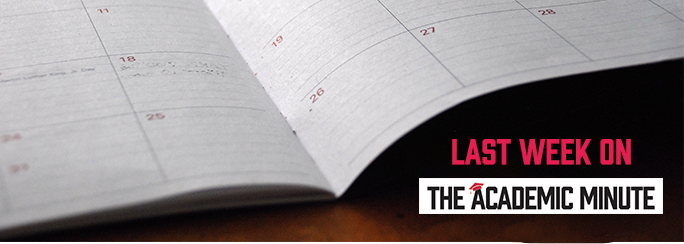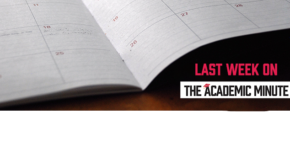
The Academic Minute from 6.03 – 6.07
Monday
Kris Wobbe – Worcester Polytechnic Institute
Maximizing Learning through High-Impact Practices
Kris Wobbe is the Director of WPI’s Center for Project-Based Learning. Most recently she directed the Great Problems Seminar program, WPI’s first-year project’s program. Her teaching awards include the Moruzzi Prize for Innovation in Undergraduate Education, and she a co-recipient of the 2016 Bernard M. Gordon Prize for Innovation in Engineering and Technology Education awarded by the National Academy of Engineering. She received her BA in chemistry from St. Olaf College and her PhD in biochemistry and molecular biology from Harvard University. She is the co-editor of Project-Based Learning in the First Year: Beyond all Expectations (Stylus, 2019).
Tuesday
Kimberly LeChasseur – Worcester Polytechnic Institute
Project-Based Learning: More is Better
As a Research & Evaluation Associate with the Center for Project-Based Learning, Kimberly LeChasseur focuses on what we know about the value of project-based learning, both at WPI and at other colleges and universities where the Center is facilitating professional learning. She helps those invested in project-based learning at the college level to clarify, document, communicate, and use what they know about their work to improve the quality of project-based learning in action. Her PhD is in Educational Leadership & Policy Studies with training in sociology and anthropology.
Wednesday
Ryan Madan – Worcester Polytechnic Institute
The Unexpected (and Expected) Benefits of Projects in the Humanities
When new acquaintances find out I teach writing, it’s not unusual for them to lament a broad decline in the nation’s writing skills. How does it make me feel, they ask, that students, say, don’t know the difference between adjectives and adverbs? Or, can I believe it that people hardly even know what apostrophes do, let alone where to put them? As someone who treasures good, careful prose, I’m sympathetic to these worries. But as an educator, I think it’s important to steer the conversation in a different direction. What makes us think that students’ knowledge of the parts of speech would “fix” their writing? What assumptions underlie our surety that ignorance of grammar or punctuation is what’s holding students back? That those are the things most important to reviving literate culture? I turn the conversation to these questions because it’s easy to forget that in literacy education, we have choices about what to prioritize. And those choices should rest on careful reflection about what we value (where we want students to end up) and careful interrogation of the assumptions we hold about how students get there.
Thursday
Sarah Stanlick – Worcester Polytechnic Institute
Failing Forward with Project-Based Learning
Sarah Stanlick, Ph.D., is an Assistant Professor in the Department of Integrative and Global Studies and the Director of the Great Problems Seminar at Worcester Polytechnic Institute. She was the founding director of Lehigh University’s Center for Community Engagement and faculty member in Sociology and Anthropology. She previously taught at Centenary College of New Jersey and was a researcher at Harvard’s Kennedy School, assisting the US Ambassador to the United Nations, Samantha Power. She has published in journals such as The Michigan Journal of Community Service Learning, The Social Studies, and the Journal of Global Citizenship and Equity Education. She co-chairs the Imagining America Assessing Practices of Public Scholarship (APPS) collective, which focuses on democratically-engaged assessment practices to empower and transform systems, communities, and individuals. She is a member of SSSP and serves on the Steering Committee for the Community-Based Global Learning Collaborative (The Collaborative). Her priority for teaching, research, and service is to encourage and model engaged, active citizenship and help create conditions for all community members to be able engage similarly. Her current interests include global citizenship, health and human rights, transformative learning, and the internet’s impact on empowerment and capacity to build community.
Friday
Lindsey Davis – Worcester Polytechnic Institute
Projects Narrow Self-Efficacy Gaps for Women
I am a broadly trained interdisciplinary scholar of 19th and 20th American history and critical feminist studies. Along with Dr. Rebecca Moody, I serve as the co-founder and co-director of the Gender, Sexuality & Women’s Studies (GSWS) program. My scholarly and pedagogical interests vary widely, ranging from reproductive justice to sexual harassment law to the intersection of feminist theory and STEM.
